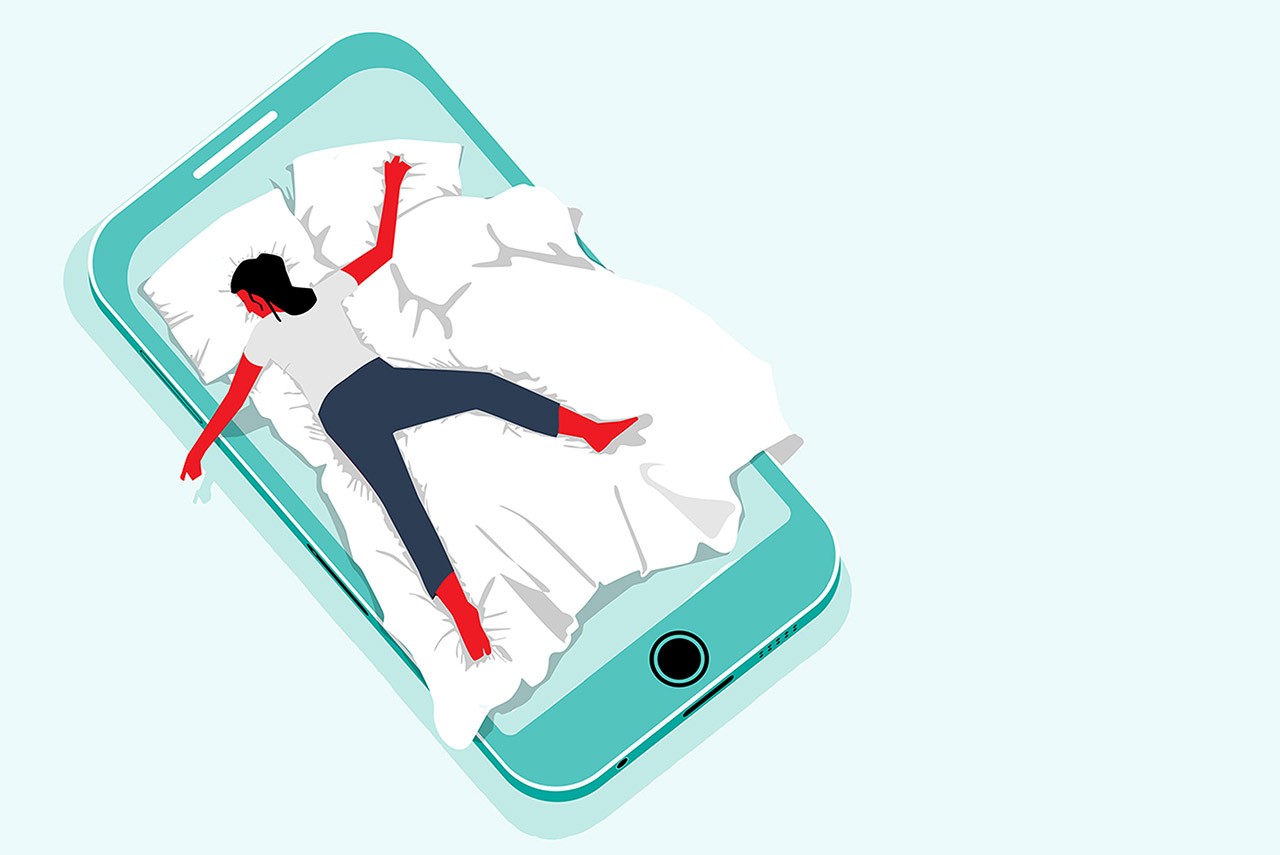FIND YOUR SEAT
Sleep on the Brain
Students delve into the neuroscience of sleep and its measurable impact on health

Sleep is a necessity, but there’s also a science to it—quite an interesting and complex one, in fact. In a course called The Neuroscience of Sleep, Villanova undergraduate students have the opportunity to delve into all its nuances and intricacies with Irene Kan, PhD, professor of Psychological and Brain Sciences.
Scientific studies suggest less than a third of college students nationwide get the recommended seven to nine hours of shuteye a night. That’s part of why Dr. Kan wanted to create a course that helps students understand how healthy sleep helps them succeed. “Sleep affects quite literally everything about our well-being,” Dr. Kan says. “I love the fact that students can translate the science that they learn in the classroom into evidence-based strategies that can have an immediate impact on their lives.”
They start by debunking some common misconceptions about sleep: “Watching television in bed is a good way to relax before sleep.” “For sleeping, it’s better to have a warmer bedroom than a cooler bedroom.” “If you have difficulty falling asleep, it is best to stay in bed and try to fall back to sleep.”
By exploring these statements and many more that are widely recognized by sleep experts as myths, students learn the truth about proper sleep hygiene and its impact on cognition, physical and mental health. “This class has been so applicable to my current life because we talk so much about the neuroscience behind sleep and why it’s an important part of how we function, but also how it affects college students and study habits,” says Annie Direnzo ’22 CLAS.
In addition to meeting twice weekly in the classroom, students report to the lab once a week for hands-on experience with neuroscience techniques. For one project, students analyze cortisol levels collected in saliva as a measure of stress response and look at how it relates to sleep duration. In another project, students measured brain activity while engaging in a memory task.
With relevant real-life applications, the course also gives students the knowledge to change their own behaviors and sleep habits based on what they’ve learned. “The class material is very applied,” says Bob Holmes ’22 CLAS. “I’m working on not using my phone before I go to bed and making an effort not to have my phone within an arm’s reach when I go to sleep.”
Did You Know?
Students weren’t the only ones who got hands-on research experience from the course. Teaching The Neuroscience of Sleep inspired Dr. Kan to incorporate sleep into her own research. In April 2022, she published a paper on false beliefs about sleep and their associations with sleep-related behavior in the journal Sleep Health with co-author and Villanova colleague Elizabeth Pantesco, PhD.
NEXT IN NOVA-WORTHY
Engineering dean partners with fellow researchers to develop breakthrough therapy for osteoarthritis